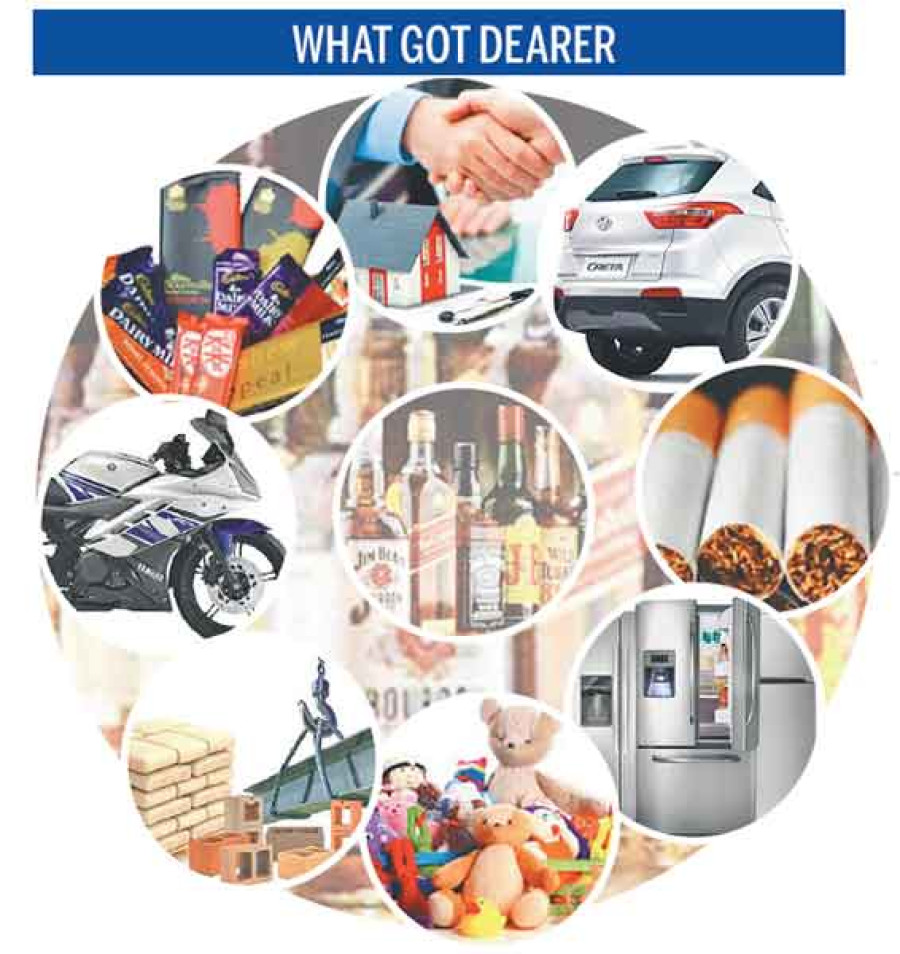Money
Citizens to pay more tax on luxury goods
The government on Tuesday levied stringent tax on real estate, automobiles, alcohol and tobacco products among others will have their tax slab and tax rates revised.
The government on Tuesday levied stringent tax on real estate, automobiles, alcohol and tobacco products among others will have their tax slab and tax rates revised.
The move is expected to net the government Rs831.31 billion in tax revenue in the next fiscal year. For this purpose, the government has expanded the tax bases along with revising the tax slab and tax rates.
Another priority of the government will be to control tax revenue leakages and improving the tax system. These provisions were presented during the annual budget. As per the new rule, the trading of alcoholic beverages, tobacco products, electronic items and construction materials being sold inside the metropolitan and sub-metropolitan areas will have to add Value Added Tax (VAT). Also, the government has raised the excise duty on these products. The government will also be collecting additional Rs0.25 of health risk tax per stick of cigarette. Imported and locally manufactured cocoa mixed chocolate, perfume, toys and refrigerators are now required to pay excise duty.
Companies bringing in two-wheelers (150cc plus) and four-wheelers (1,000cc plus) will also face higher excise duties, resulting in costlier vehicles for consumers.
Looking to curb the lapses on land transactions, the budget has also revised the slab of capital gains on land transactions. Sellers will now have to pay capital gains tax on land worth Rs1 million and above. Earlier, capital gain tax only applied to land sold at a valuation of more than Rs3 million. The new tax slab is expected to encompass almost all land transactions into the tax bracket.
Similarly, the government has scrapped the provision of VAT refund provided to individual sellers. Under the new rule, mobile importers are now excluded from the facility that was previously afforded to them. With the new provision, the purchaser will now have to pay higher costs while purchasing mobile sets.
While most goods and services will see price hikes, the government has shown leniency towards education and health services. The budget scrapped both the education and health service tax. Similarly, patients will not have to pay VAT upon receiving medical services at private hospitals.
Another area that the budget looks to highlight is income tax. The government has introduced a progressive tax ladder—imposing 10 percent, 20 percent and 30 percent tax rate based on the level of income. With the new provision, an individual having annual income of more than Rs2 million will pay an additional 20 percent tax.
Similarly, the budget has considered providing subsidy on the income tax paid by manufacturing firms that provide direct employment to more than 100 people. Tea, textile and dairy industries will be waived income tax of up to 50 percent. Community hospitals will be waived 20 percent of the income tax. Likewise, the tax waive limit on the premium paid for life insurance has been increased to Rs25,000. The tax authority will take on the spot action against tax evaders and the firms failing to issue invoice on their transactions.
The budget also mentions incorporating the non-filers of tax for the past three years into the tax bracket, promoting trade through opening letters of credit, implementing risk management at the customs clearance, enforcing the integrated tax payers management system and implementing the electronic billing system to register tax payers into the central billing monitoring system.
Economist Chandan Sapkota expressed his skeptical view on the government’s proposed revenue growth target. “Although the revenue target mentioned in the budget is just Rs831.3 billion, the central government will need to mobilise Rs945 billion as revenue consisting of tax and non-tax, and Rs114.2 as revenue sharing with provincial and local governments,” Sapkota said.




 9.89°C Kathmandu
9.89°C Kathmandu














